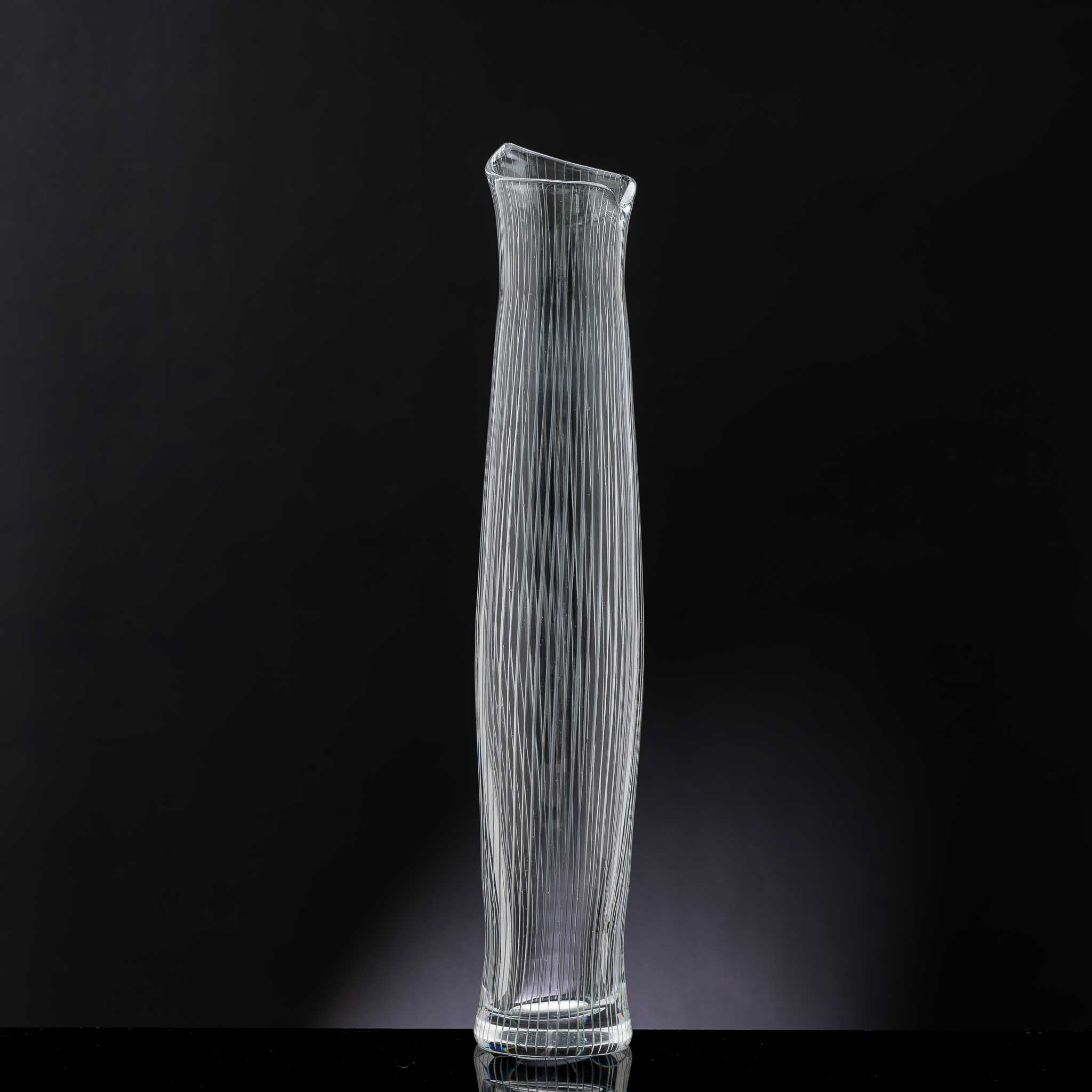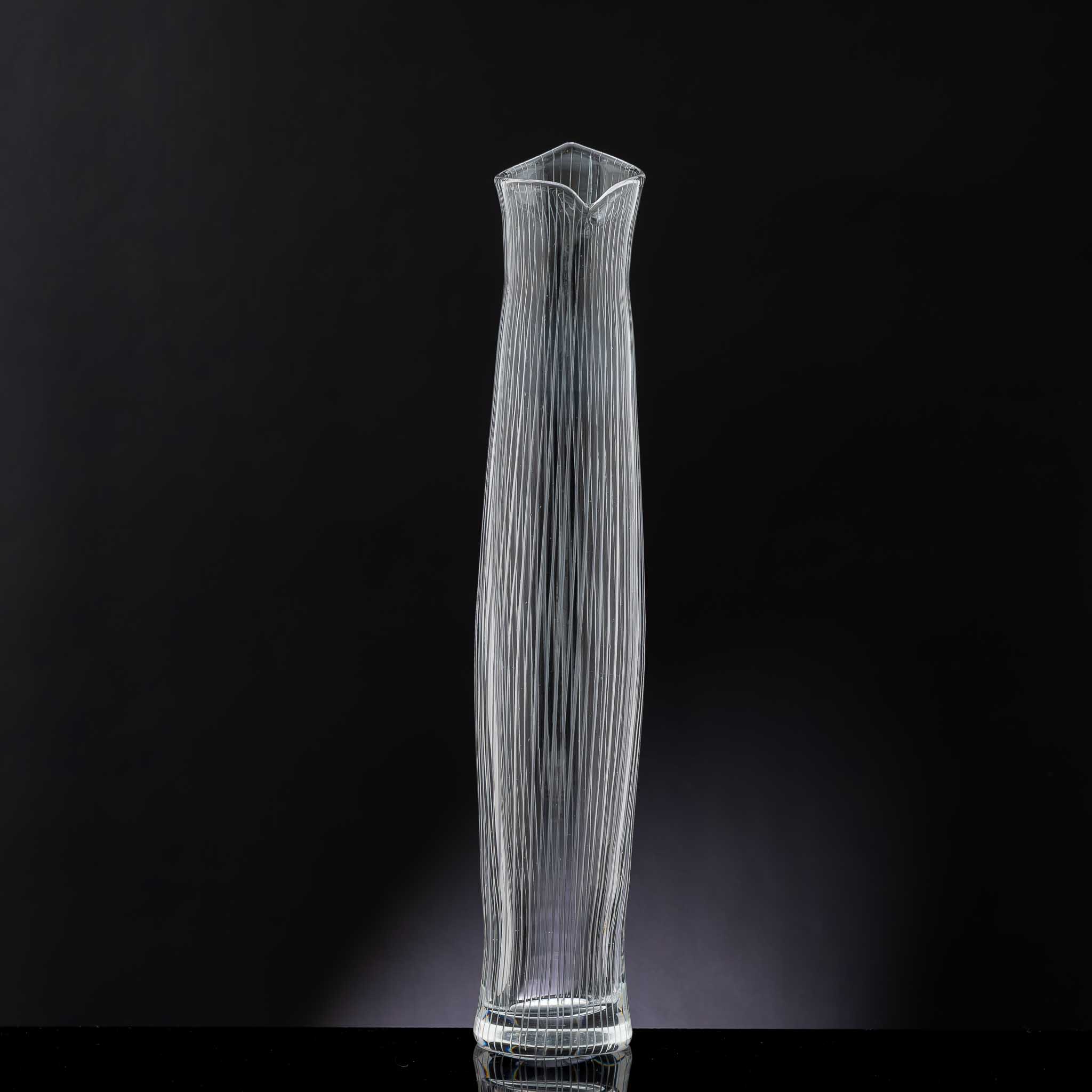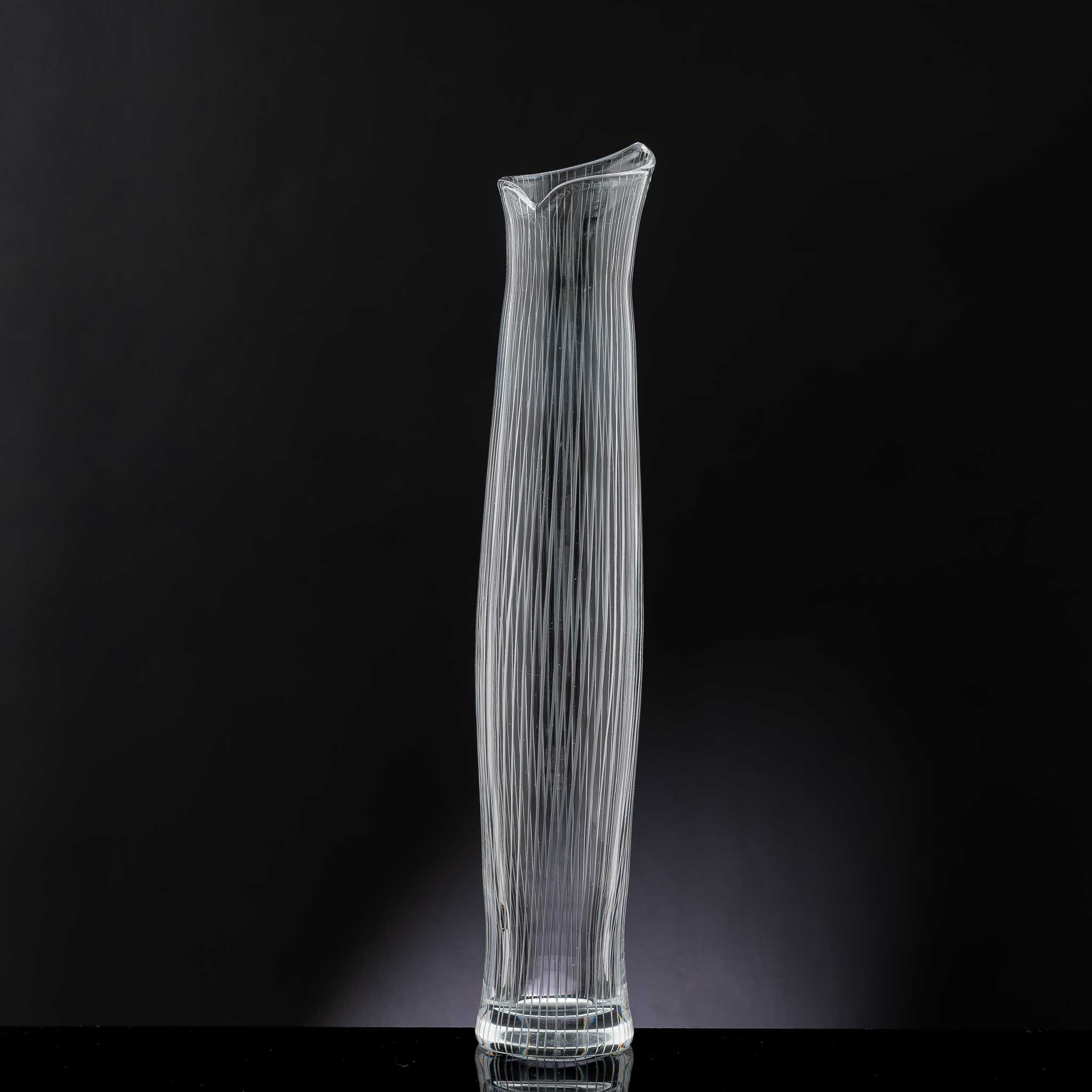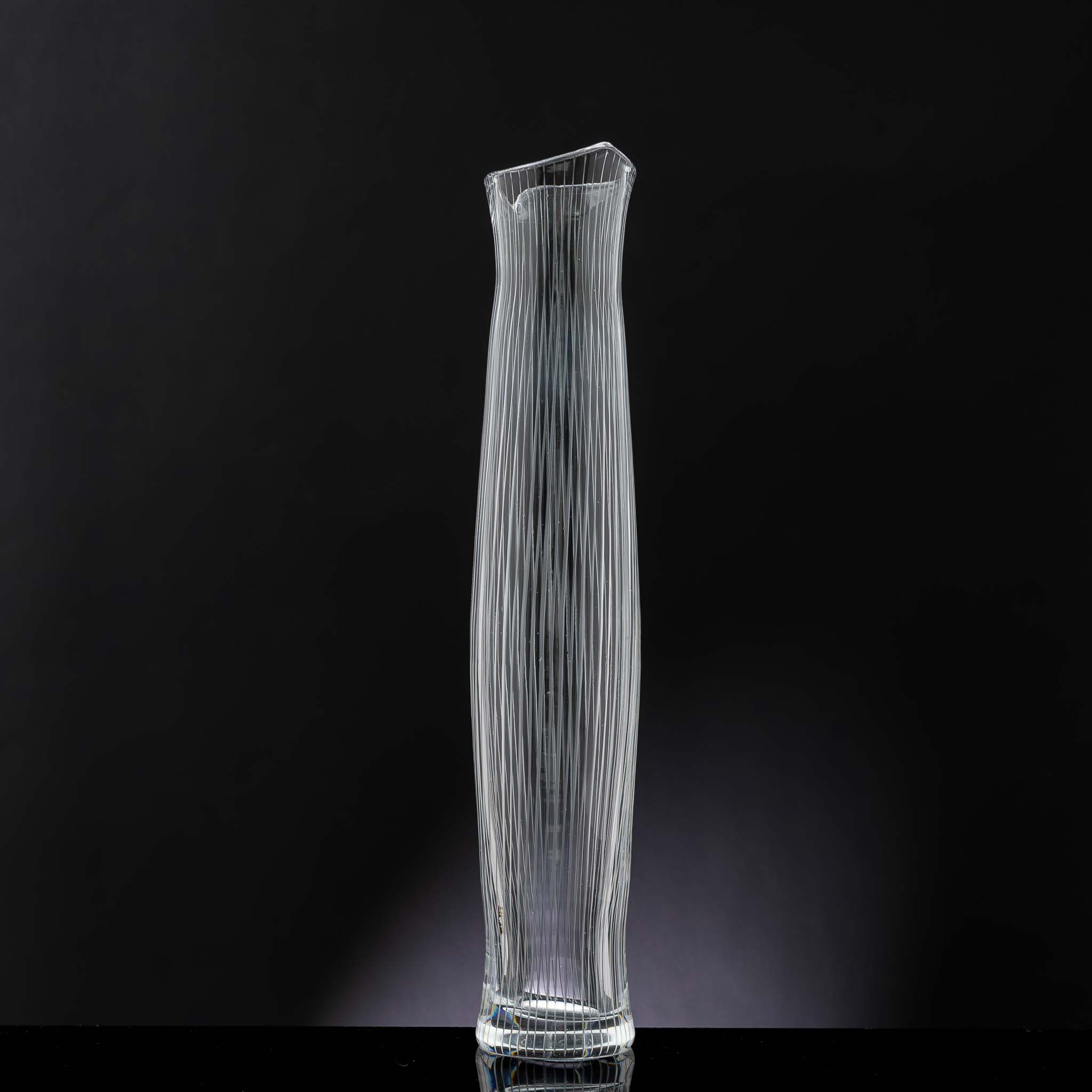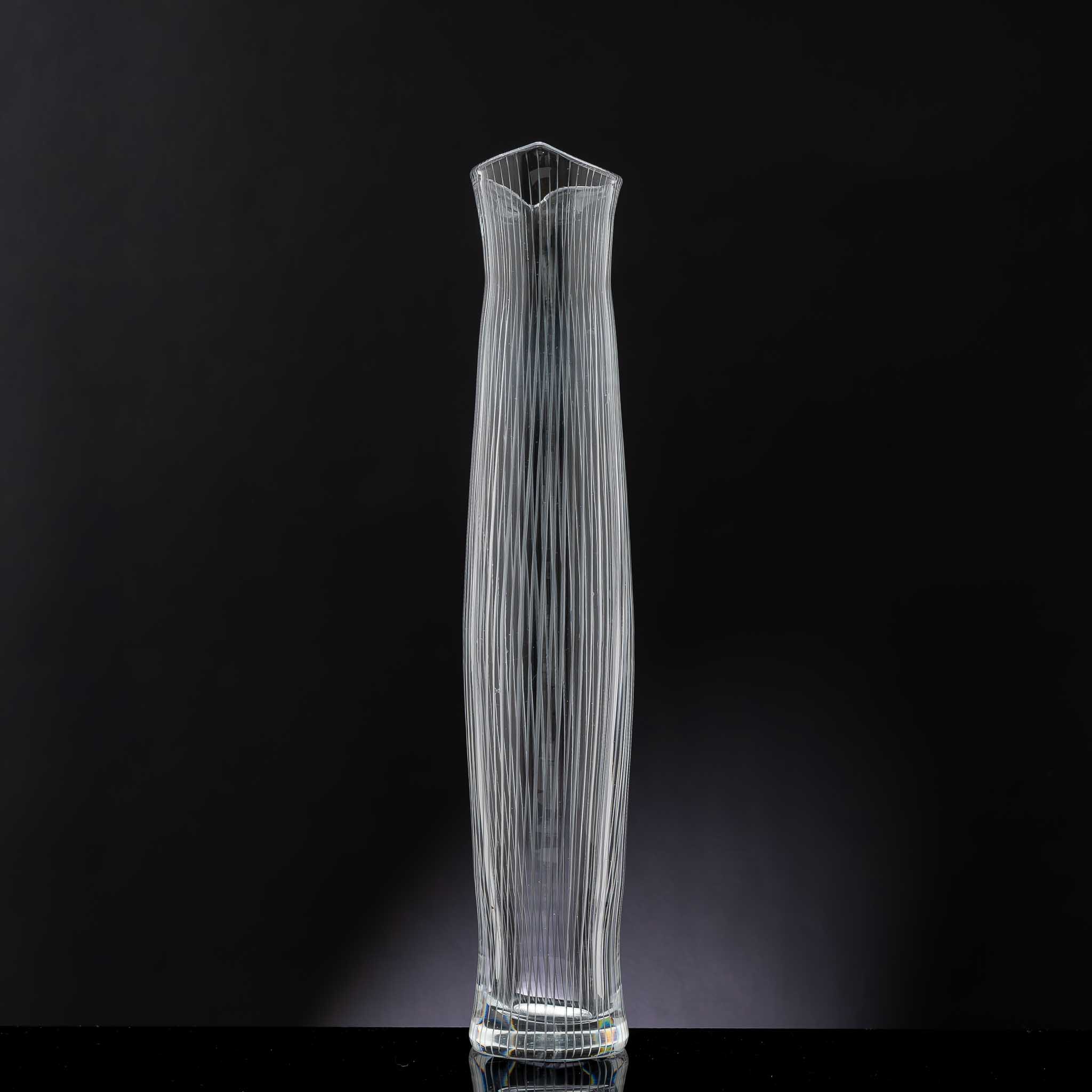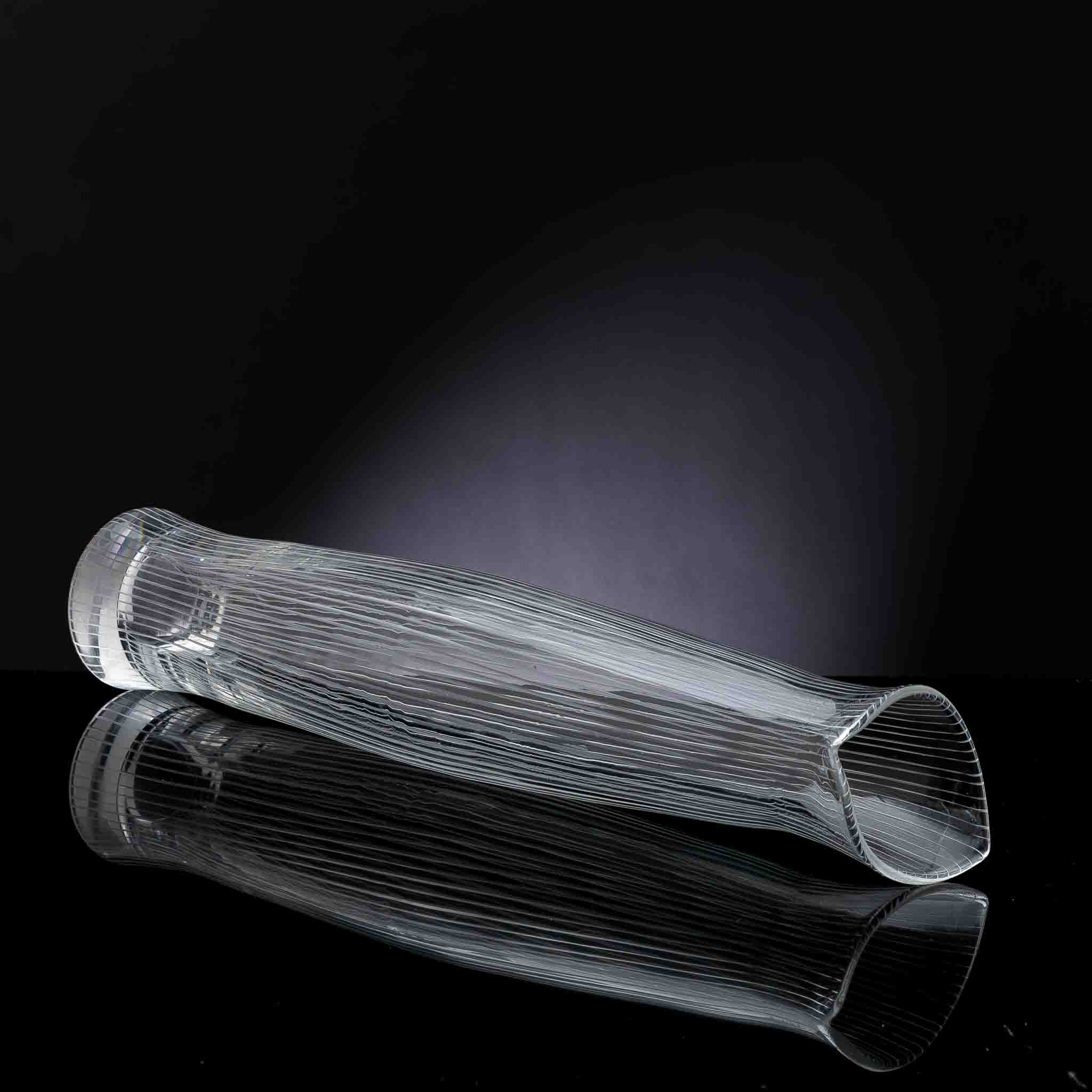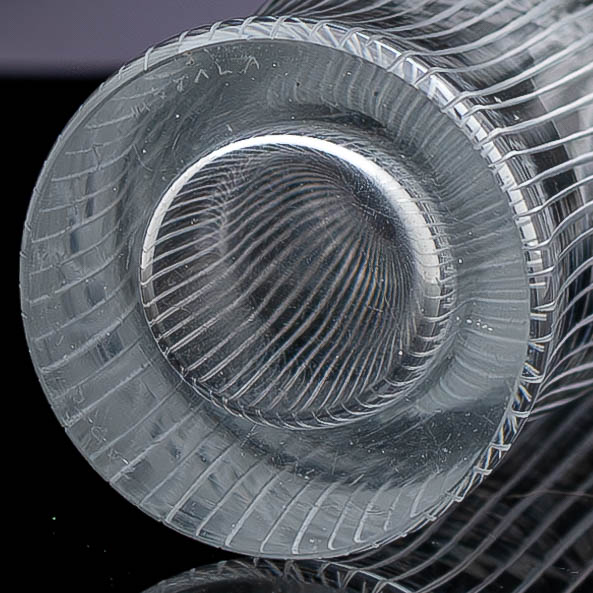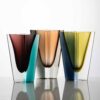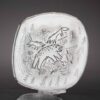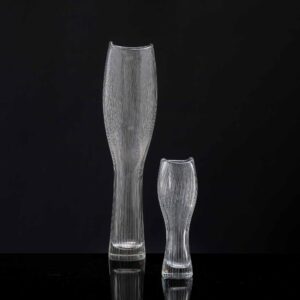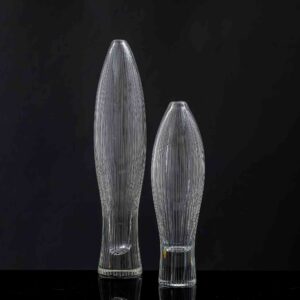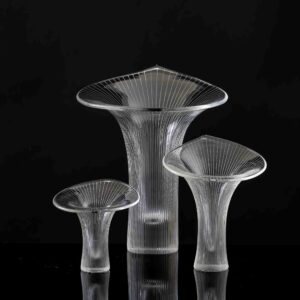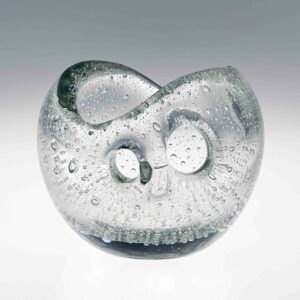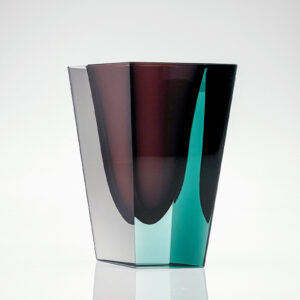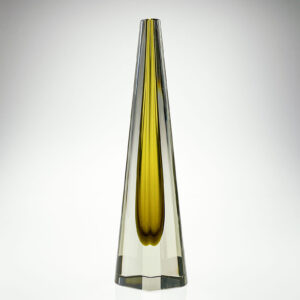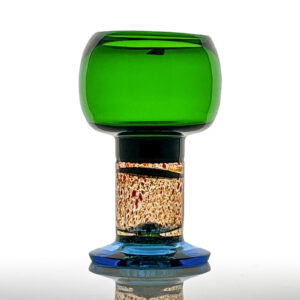| Marked | Signed in diamondpen underneath the base: Tapio Wirkkala Iittala |
|---|---|
| Execution | Iittala glassworks, Finland, 1951-1954 |
| Condition | This Art object is in very good condition, Some very minor scratches consistent with age and use. No cracks or chips. |
| Literature | Marianne Aav, Tapio Wirkkala eye, hand and thought: p.63, p. 79 (illustrated), p. 300 |
| Dimensions | Height 37,8 cm |
Tapio Wirkkala – Scandinavian Modern crystal Art-object “Tuonelan virta”, model 3522 – Iittala, Finland ca 1954
SOLD
Out of stock
A turned mold-blown crystal Art-object with vertical cut lines, “Tuonelan virta” or “Stream of Tuonela”. This Art-object is model 3522 in the oeuvre of Tapio Wirkkala. It was designed in 1951 and handmade by the craftsmen at the Iittala glassworks in Finland between 1951 and 1954.
The “Stream of Tuonela” is one of the few named glass-objects by Tapio Wirkkala. Other examples are the “Kantarelli” (Chantarel) and “Tatti” (Boletus) in which Wirkkala found inspiration in nature. For this object Wirkkala was inspired by Finnish mythology. The Stream of Tuonela was the river that seperated the world of the living from Tuonela (the Underworld in Finnish mythology).
These art-objects were made between 1951-1954 in one size only. This is a signed example in very good condition.
About Tapio Wirkkala
Tapio Wirkkala (1915 Hanko, Finland – 1985 Helsinki, Finland) was a Finnish designer and artist, best known for his work in glass and other materials. Born in Hanko, Finland, Wirkkala studied at the Central School of Arts and Crafts in Helsinki and later at the Helsinki University of Technology. Throughout his career, Wirkkala worked in a wide range of mediums, including glass, ceramics, metal, and wood, and was known for his innovative use of materials and his ability to create pieces that were both aesthetically pleasing and functional.
Wirkkala’s work is characterized by his use of clean lines, organic shapes, and natural forms. He was particularly inspired by nature and was known for his ability to capture the essence of organic forms in his designs. For example, one of his most famous pieces is the “Birch” vase, which was created by casting liquid glass into a mold made from the trunk of a birch tree. This piece is a prime example of Wirkkala’s ability to combine his love of nature with his expertise in glassblowing techniques.
In addition to his work in glass, Wirkkala was also highly regarded for his work in ceramics. He collaborated with several Finnish ceramics companies, including Arabia and Iittala, and was known for his ability to create pieces that were both beautiful and functional. Some of his most famous ceramics designs include the “Finlandia” vase and the “Rye” dish. These pieces, like much of Wirkkala’s work, are recognized for their simple yet elegant designs and their timeless appeal.
Wirkkala was also a prolific industrial designer and worked with a number of well-known Finnish companies, including Kultakeskus, Nuutajärvi, and Iittala. He was known for his ability to create functional and stylish products that were made with the highest quality materials. For example, he designed a range of cutlery for Iittala that is still in production today and is considered to be a classic example of Finnish design.
Throughout his career, Wirkkala received numerous awards and honors for his work. He was a member of the Royal Academy of Fine Arts in Finland, and his work was exhibited in museums and galleries around the world. Despite his success, Wirkkala remained humble and dedicated to his craft. He once said, “Design should be like a river, flowing and changing with time.”


